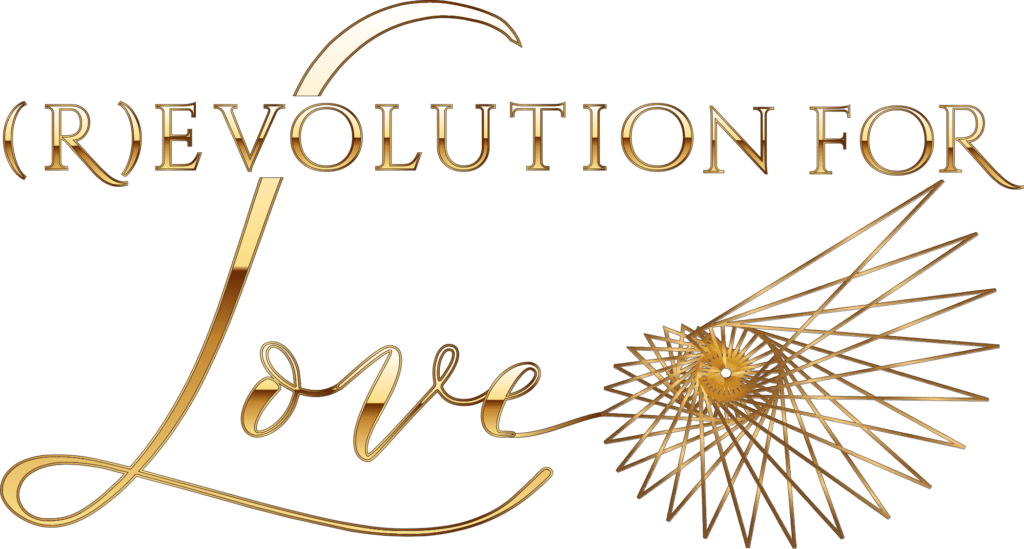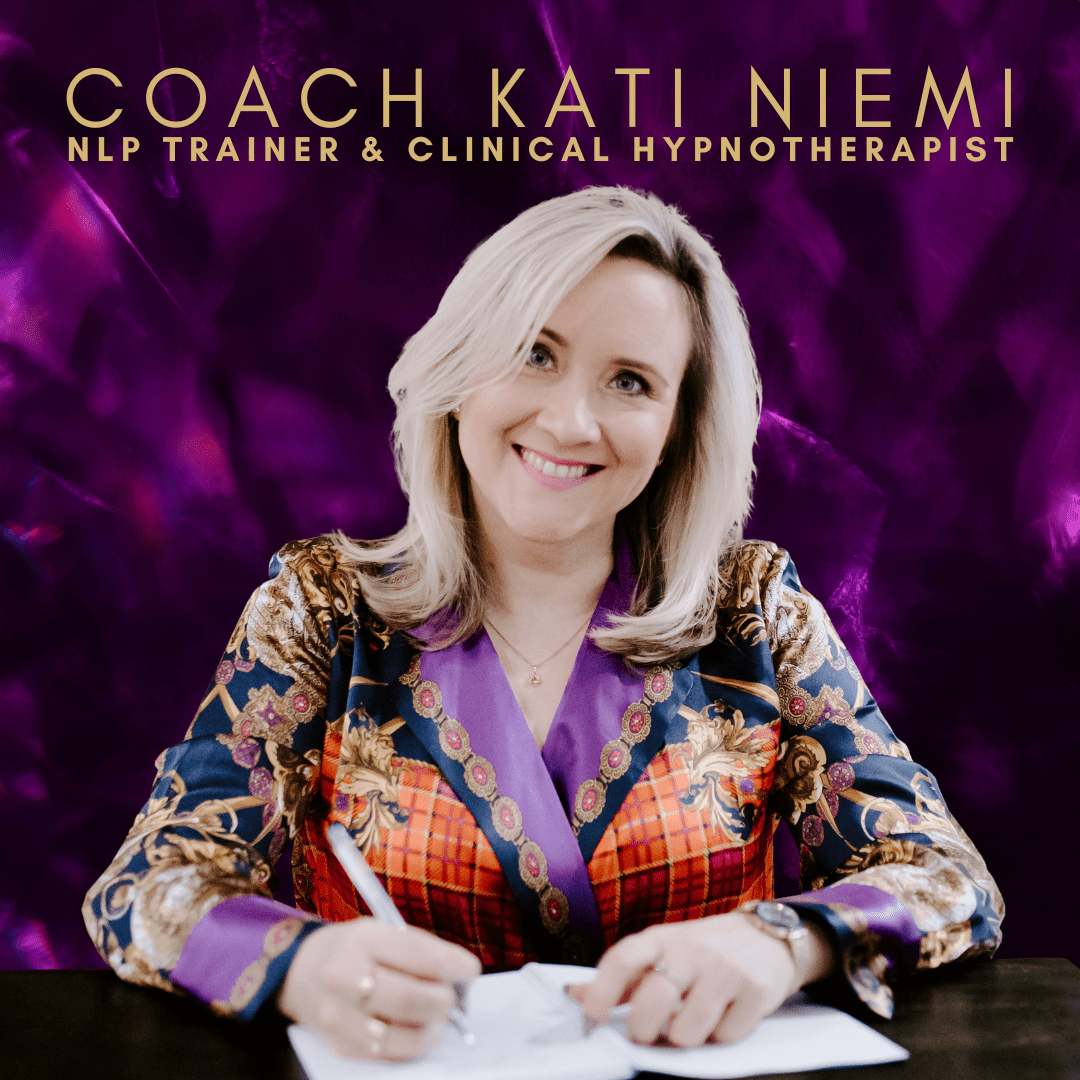Remember how after the most recent argument between you and your partner you promised yourself you would never shout at them again? Or slam doors? Give them the silent treatment? Throw tantrums like a child? Next time, you would act like an adult: constructively and without raising your voice. Decided. Come next argument, how ashamed were you to find yourself yelling, bitching, slamming doors or giving them the silent treatment? And what was the argument about? Nothing much, really.
Why are arguments between a couple often like carefully scripted plays the lines of which both know by heart? What is it in your partner that makes you go from zero to a hundred in second? Didn’t you just swear that you would keep calm?
You probably know someone whose basic repertoire includes sentences such as “Why do I always fall in love with the wrong guy?” or “Why do I keep attracting commitment phobic/cheaters/weirdos?”. Perhaps you have been wondering to yourself why you always end up in disappointing relationships?
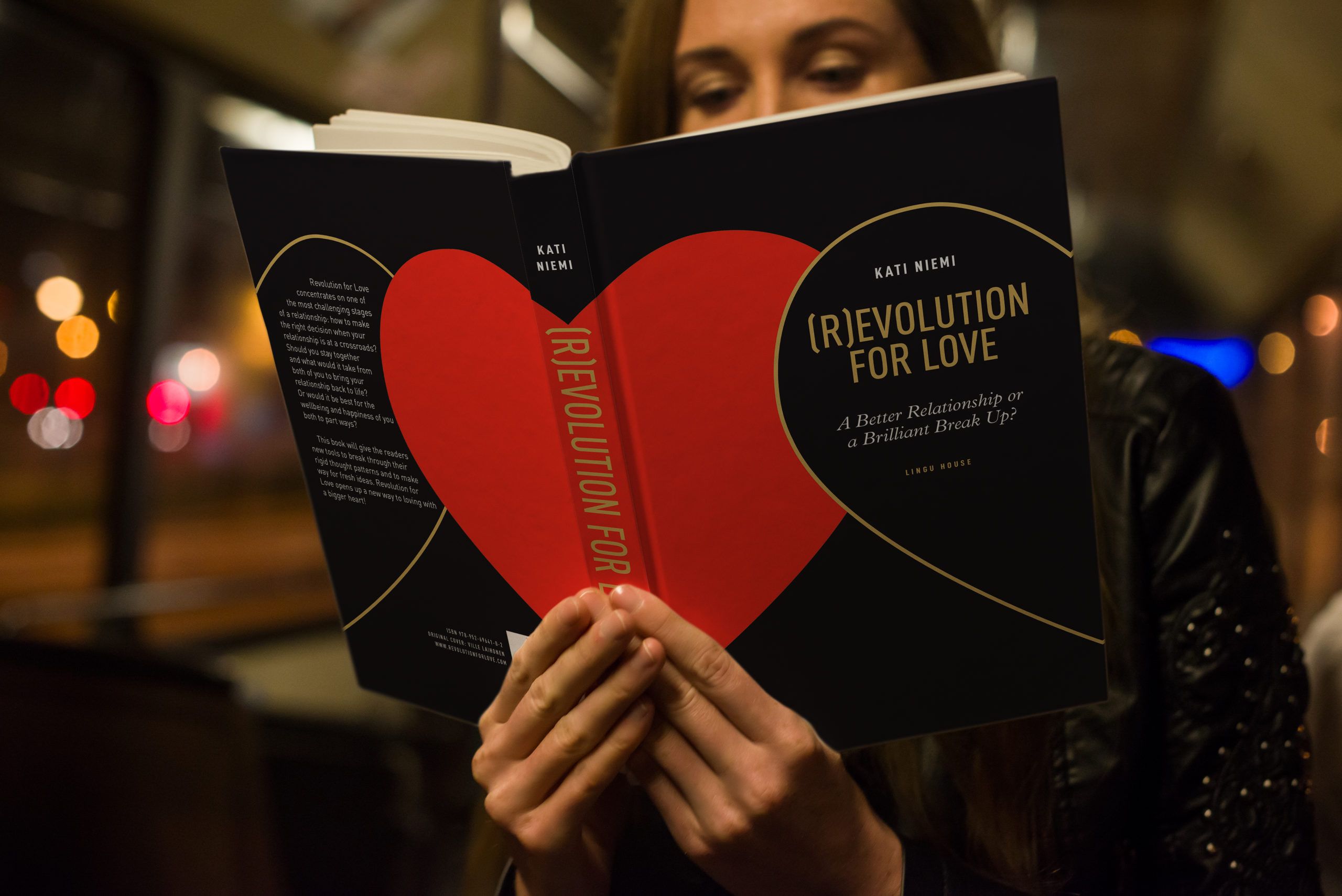
(R)evolution for Love – The Book
* I have selected every editorial product for your benefit. Sometimes you may get some discounts and I may receive a share from purchases made
In this blog posting, I will describe you the moment when I realised I was in a relationship with my mother. Keep reading to find out what that has to do with arguments between a couple.
I will also discuss what could cause these common problems:
- Arguments between a couple often follow the same pattern. Why is that?
- We are supposed to be sensible adults. Why do we overreact and act like children with our partners?
- How come we keep on having the same relationship problems even if the partner changes?
- What makes apologising so difficult?
- Why do we find ourselves in the same situation repeatedly, even if the people and the contexts of that situation seemingly have nothing in common?
- How could we get enough love, acceptance and attention in a relationship?
- Why do we attract the “wrong” type?
How does an argument between a couple escalate into a shouting match in minutes from one wrong word?
I’m sure you know the feeling. You’ve had a tough day and you can’t wait slumping down on your sofa, get the chocolate/sweets/wine/book/TV control/bag of crisps out and relax? Or, like in my story, put the first perfectly crunchy kale crisp in your mouth.
Finally alone, in all peace and quiet, nobody asking for anything from me. Perfect.

How to improve your wellbeing through self-development?
Science has revealed: some adults are not mentally sufficiently developed. How to improve your wellbeing through self-development?
Except not: my partner burnt the kale crisps.
This argument started from what many arguments between a couple do: nothing.
Me: Nooooo, my crisps are all burnt! You were supposed to keep an eye on them! I can’t eat these now!
X: Don’t blame me, it was an accident!
Me: Well, they are burnt and inedible anyway.
X: So what, they are crisps.
Me: Well, you are the one who let them burn, so can’t you even say sorry?
X: I did nothing wrong. Calm down.
Me: But would it hurt you to say sorry?
X: You know I only meant well and wanted to help you. Calm down.
Touché!
I was so furious I wanted to smash plates against the wall. I had to leave the room because otherwise I would have. For real!
And that’s when it happened. I suddenly saw the situation in all its clarity:
I was fighting with my mother.
The feeling was exactly the same. The situation identical:
- I’m sad or mad about something my mother had said or done without meaning to.
- My mother then refuses to take the blame and instead accuses me for being unreasonable and telling me to calm down.
- Result: nobody feels understood or gets what they want.

FREE EBOOK ‘I love you but…’ – To Break Up or Not to Break Up?
Refocus your energy now to improve your love life! This FREE ebook ‘I love you but…’ will help you move towards a better relationship or
I don’t get what I need: understanding and sympathy for my hurt. My mother does not get the thank you for meaning well and trying to be helpful to everyone. Both feel misunderstood.
I almost smashed those plates
The burnt crisps turned me into a child. So no wonder my instinct was to throw objects – what else does an incensed four-year-old do? (Or to run away from the scene, which is what I did next…)
And I was not the only child in the fight. My ex responded to the accusations like another four-year-old:
“It wasn’t my fault, I didn’t mean it”-
Instead of a simple sorry, I’m told that my feelings are not acceptable and eventually it is me who has to apologise for my reaction.
Because he never does anything wrong. How could he, he’s the one who unselfishly always puts other people’s needs first.
Know the type?
How could you be angry at him, they’d do anything for you and you know it! So you’d better shut up or be prepared for quite a talking to.
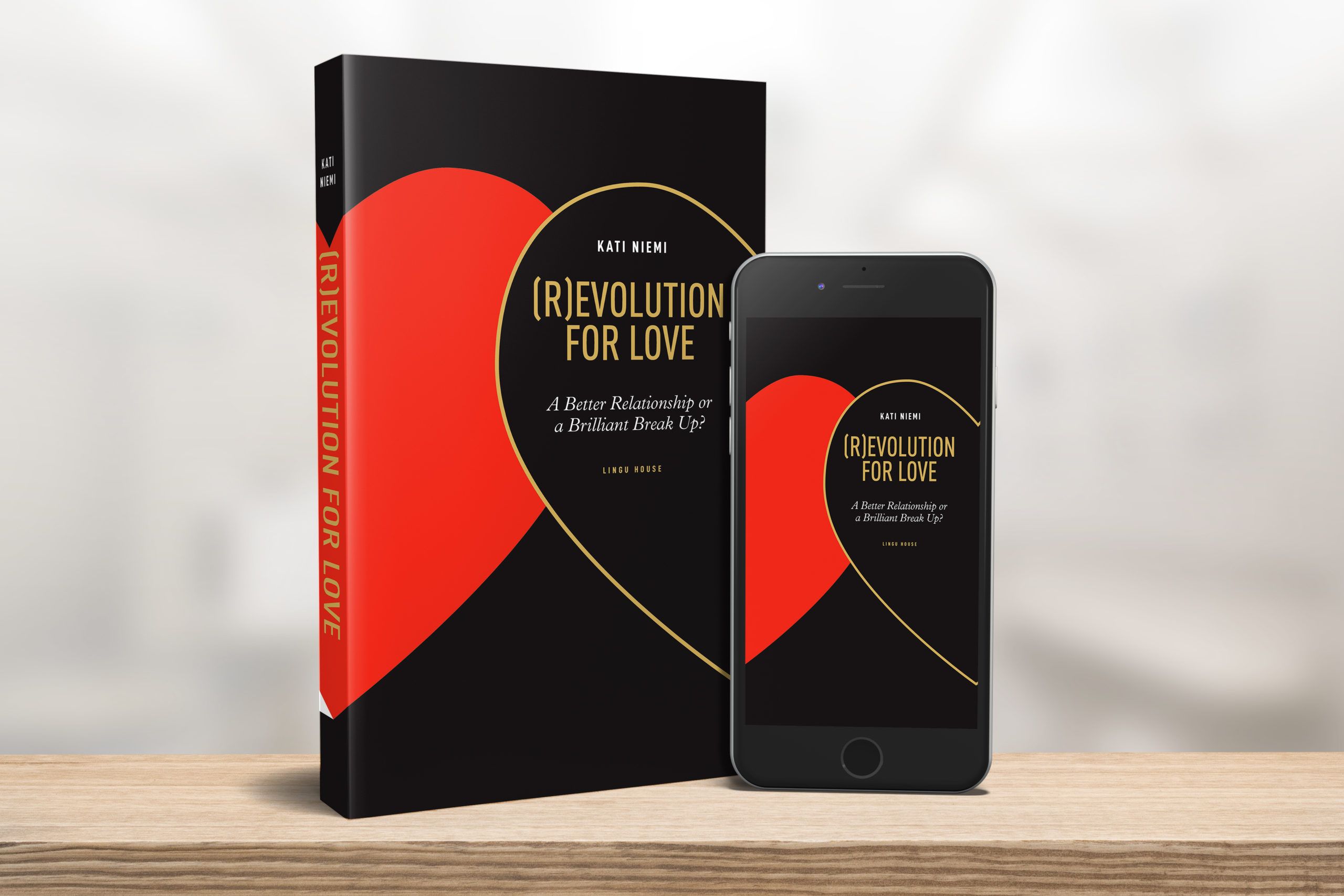
FREE AUDIOBOOK: Audible, Google Play and other stores’ free trial
Audiobook lovers benefit from FREE trial periods of book stores. Enjoy (R)evolution for Love on Amazon Audible, Google Play & other stores
Why is "sorry" the hardest word?
I’m having the is exact same conversation with my own 5-year-old: Should you take responsibility and say you are sorry for something although it was an accident?
How to swallow your pride and admit and you may have unintentionally hurt someone’s feelings? My 5-year-old is squirming, clearly uncomfortable with the dilemma, and after giving it some thought, decides to go and apologise to his brother.
Some of us never got the chance of reflecting on this and practice when we were young.
If someone feels hurt, that’s their problem. Why should I be sorry about that? What people need most of all is the validation of their feelings and experiences. We want someone to say: I see your point, it’s ok. Apology as such is not really the point, it’s about not being invalidated.
In an ideal world, we would be adult enough to validate our own emotions.
As adults we can be that parent to ourselves who understands our reactions (even if it’s a bit over the top).

Online Coaching
Happy to help you! Welcome to book your online coaching session with the certified Coach, NLP Trainer, and Clinical Hypnotherapist Kati Niemi! Please select your
The problem is, this is a difficult skill to master. Some people haven’t been taught it when we were young or we haven’t thought to practice it in our adulthood, it is not easy. If your emotional reactions were dismissed or undermined as a child or you got told off for them, deep inside, you may still be looking for that adult’s validation. You can’t trust yourself to judge when your experiences are valid and your emotions acceptable.
Now we get to the interesting part: We are likely to be very good at finding a partner – even several consecutive partners – who won’t give you the positive validation that you didn’t get as a child. And hey presto, the template for your arguments is ready.
"Why do I always fall in love with people who are already taken?”
Some people repeat the same pattern throughout their lives
I’m sure you know someone who at regular intervals retorts: “Why do I always end up with these weirdos. Am I a freak magnet or something?”
You know what they say: birds of a feather flock together! We like what we know. The family dynamic we knew growing up is usually our first – and for a long time often the only – model of love we have. So we think what love in our family was like is what love is like, period. And we want and look for love, right?
By observing our parents’ relationship, we began to learn how to resolve conflicts. We would adopt their methods and practice them: What happens when I get angry and shout? How about if I express my disappointment? How will people react if I’m sad?
These observations and experiences equip us with the methods we resort to in challenging situations to make sure that people won’t stop caring about us or abandon us.
The conflict between the need to show our feelings and the fear of the repercussions can be quite sharp. We encounter this conflict throughout our lives: how much and in what way dare I express my emotions and needs so that people will still like me? How can I have an argument with my partner and show my feelings without losing their love?

Relationship Conflict: How to Diffuse Confrontation
Tips for diffusing conflicts in your relationship to improve your connection. Conflict resolution skills for happy and healthy relationships!
Although we learn how to navigate conflict situations, our need to be loved and accepted as we are will never disappear. No matter how well we learn to hide our emotions
We keep on looking all our lives for what we didn’t get as children
The key is to become aware of our personal “tragedy.” By this term, I mean the things we didn’t get enough of as children. Without the awareness of it, we are likely to keep on looking for the fulfilment of our needs long into adulthood. We may be after people as well as things. The one thing they have in common is that they can’t give us what we need.
Like I couldn’t get my mother’s validation by starting a relationship with a person who behaved just like my mother.
It may well be that the person that eventually turned out to be the wrong partner, initially felt just right, because their behaviour was in line with your idea of what love looks and sounds like.
When you were a child, you would be repeatedly disappointed with how you were misunderstood and weren’t seen and treated the way you hoped. Fast forward into adulthood.
You meet a new person and before you know it, you are exactly in the same situation again.
Your arguments follow the same pattern as what you grew up with, and you feel the same feelings. Then perhaps we hear ourselves go on, as if on repeat: “I always meet the wrong type. They are all commitment phobic/dismissive/bitter/unhinged… Why me?”

Be aware of the impact of stress on your relationship
Stress symptoms and the impact of stress. If you have to manage you partner’s stress, yours is not a love but a care relationship.
Can you see a pattern in the relationships that has proved disappointing?
What is it that you are not getting enough of?
Thinking about your life and goals, can you name what it is that you gain once you’ve achieved those goals:
Acceptance? Attention? Recognition?
Can you identify what it is that you are still chasing?
Arguments between a couple: Why do we overreact? How can we avoid the drama?
Let’s get back to my kale crisps. As you have already gathered, the argument had very little to do with crisps. I grossly overreacted because my ex’s response touched a nerve: I shouldn’t be feeling the way I feel. Within seconds, I was back to my childhood self and was devastated that the person dearest to me does not get me. When I put it that way, the reaction no longer seems that exaggerated.
But how could we have avoided the drama? What I wanted to hear was: I can see why you are upset. I didn’t mean to burn them but it doesn’t change the fact that the crisps are burnt and that’s annoying. Sorry about that.

Can secret affairs and one-night stands keep a relationship alive?
The love and passion in a secret affair can be the most amazing thing to experience. What reason is good enough to have a secret affair?
Why was it so hard for my ex or my mother to say they were sorry? (And for many, many other people…)
We seldom mean to hurt one another. And yet we quite often manage to do something that upsets or creates difficulties for others. If you have never been allowed to freely express your disappointment/anger/sadness or your feelings have not been accepted as your feelings, with the understanding and those feelings are yours and not for them to control. Such conflict situations may continue to feel unbearable even in adulthood.
How can precious quality time together turn into a massive row in seconds?
The following scenario may also seem familiar: You have racked your brain planning a great date night for your partner. You’ve thought about all the details and spent a lot of time and energy on the arrangements. Yet your partner’s reaction to everything is a lukewarm “it was OK” or they criticise the food at the restaurant you have carefully chosen.
Even more typical (and even more infuriating) is the idea of spending some special time with one of your kids. It would be just the two of you and you would be doing everything you know they enjoy. Brilliant idea. However. on the day your kid is giving you hell, it’s the most boring stupid day ever – and you are probably not behaving any better, acting out your disappointment.

Open relationship – just an option among many others?
What is an open relationship? What could we all learn from them? Do people in open relationships not experience jealousy?
As a child, we think that it’s all about us. Everyone’s actions and reactions are somehow because of us. “My parents look angry so I must have done something wrong”; “They are having a fight because I was naughty”; or “My parents look happy so I must have done something right”. By the time we enter adulthood, we should have, in theory, built the ability to differentiate between our own and other people’s emotions and to accept that we can’t control how other people feel. Even if everyone meant well.
The need to be perfect may be a hiding a sense of inferiority
Sometimes admitting to the slightest of mistakes is too difficult. Admitting the mistake would be like unlocking a whole treasure trove of imperfections, guilt and shame, which is more that you can handle at that moment. That’s why it’s easier to deny any possibility of fault and do everything in your power to not have to feel that sense of failure and to face the “truth”:
People often think that the solution is to avoid all conflicts. That is a bit like sweeping problems under the carpet or being told to hold your tongue. Anything to avoid confrontation or airing unpleasant feelings. As a typical reaction to people who have an issue with something or who want to criticise, we might say: “Let’s not think about that/try and get your mind off it/no harm done/don’t be so petty/all’s well that ends well.” Another tactic is to use attack as defence: You are wrong, not me! In Case Kale Crisps, my ex applied both tactics expertly. The main goal was to get the focus shifted away from the situation where one could in anyway be subject to criticism.
Arguments between a couple: You know I would never do anything to hurt you!
They want the best for everyone. To put everyone’s needs first before their own. Secretly (even to themselves) they want recognition and praise. People hope that as long as they are sufficiently good to others, others will finally realise what a treasure they are and give them all the praise and attention they have yearned for. Usually they dare not see let alone admit to their real motives of putting others first. However, they quietly suffer because nobody appreciates their sacrifices or helps them in return.

TO BREAK UP OR NOT TO BREAK UP? Should I stay or should I go?
How do you know if you should leave or not. How to make the decision to break up or to improve your relationship? To break up or not?
If you have practiced this type of pattern for decades, it is easy to see how it can take just one word, subtle tone of voice or look to trigger a fight of biblical proportions. The road between action and interpretation is all too clear. After all, you have repeated the behavioural model dozens or even hundreds of times and honed it to perfection. There is so much baggage and your powder is so dry that anything can ignite a full-blown disaster.
Who’s to blame when arguments between a couple always follow the same pattern?
No one, really. Nobody’s perfect. My mother acted how she had learnt from her own mother. My ex was mirroring his own parents’ relationship. We both naturally fell into a dynamic that was familiar to us. I think we were all just pieces in a chain, operating on a pre-programmed autopilot. If you are able to stop and take a hard look on your behavioural patterns and life, you will probably notice that your challenges are surprisingly similar to those of your parents. And their parents. Your children will be facing the same ones as well unless someone breaks the chain.
But the good news is that the chain can, indeed, be broken. If you have learnt “to attract nothing but weirdos”, you can change how things go the next time. No matter how toxic your relationship model from home is or how pathetic your conflict resolution skills are, you are not doomed. You only need to do one thing: be brave enough to face yourself and honestly look at situations that you find repeatedly difficult. Look carefully: can you see a pattern?

When should you break up? Find out if you should stay together.
When is it pointless to stay together? When would you be better off breaking up? How do you know if you should break up or stay together?
Think about your relationships. Did your parents, childhood family or relatives have similar problems? Then think about an unpleasant feeling you keep going back to. Can you remember if your parents, childhood family or relatives felt the same way.
What makes you lose your temper even if you had sworn that from now on you would argue calmly like an adult?
Think of the most typical arguments you have. What makes you explode particularly badly or fast? What was the situation in which you realised that your reaction was in no proportion to the problem at hand? When did you shout although it’s not like you to shout? When did you slam doors, storm off, completely freeze? What are those situations in which you get so angry that you start shaking? What does your partner typically say during an argument that you can’t stand?
If you can identify these scenarios, think how far back you can remember reacting like that? Since your earlier relationships? Whenever you are with friends? Can you remember similar scenarios from your childhood?
If you can, next time when the things start to get tense between you and your partner, take a deep breath and try to view the situation as if you were an outsider: Is there something familiar in this situation? Do I feel physically like in certain previous situations? What happened? What does this situation remind me of?

Thinking about Breaking up? Social Media Reveals Your Thoughts
Thinking about breaking up? Your breakup thoughts – and relationship thoughts overall – might show up on your social media more than you know!
Who else made me feel like that? How did I react at that point? How did they react?
In what type of situations do you feel disappointed with people? What type of behaviours do you often hear yourself complain about?
Examples:
I always have to do everything.
Nobody appreciates how much I do for others.
Everything always happens on other people’s terms.
Nobody listens to me.
I’m always excluded.
I’m never kept informed about things.
Nobody is interested in what I’m going through.
I get no support.
I’m always so unlucky.
Everything I put my mind to goes wrong.
I’m not good at anything.
What would you like to hear your parents say to you even today?

THE FEAR OF BREAKING UP: “I’m too ashamed to leave.”
Some people stay in an unhappy relationship because of the shame and fear of breaking up. Break-up fear and and shame is common. Why?
How to break the inevitable and unproductive pattern of your arguments?
If we become hijacked by our emotions and go into the child mode, what your conscious, rational mind wants to do is of little impact. No matter how much you promised yourself you would never again shout at your partner/kids or slam doors or give the silent treatment or throw tantrums like a baby, what if you still find yourself repeating the same behaviour? It is as if you have no control over yourself, like someone else is remotely controlling you.
In a way that’s what’s happening. You are controlled by that child within you dressed as an adult who’s controlling you.
Since the root cause for your reactions is deep beyond the reach of your rational thinking, it will take more than rational thinking to defuse those reactions. Nothing will change unless you take the plunge and dive into the experiences of disappointment on an emotional level as well. The circle will carry on unbroken as long as we avoid processing the emotions that take all our energy to escape.
So, why don’t we just do that and be done with it? Because it is difficult, painful and scary:
Hey, I have an idea. Let’s go back to your worst childhood memories and really dwell on them.
That’s a great idea, let’s do it!
(Said no one ever.)
Happily, looking back at your memories won’t in reality be that scary.
Why we dread doing it is because we – wrongly – think we still have the resources and methods to cope with the situation as we did as a child. This is seldom the case. But: it is important to know that this exercise is not right for everyone. Sometimes it may be that exploring childhood trauma can be too much to bear if coping with your daily life takes up all your resources. In that case, the best and safest thing to do is to process issues with a professional counsellor or coach. Professionally led talking therapies and support may be necessary because this process is no walk in a park.

CHEATING: One night stand. Secret affair. The other woman.
In this blog on cheating you will get tips and peer support for moving towards a permanently better life when you have been or are cheating.
With those words of warning, I do encourage everyone to pause and think about this topic. It is easily to most effective form of self-help and could change your arguing style as a partner or a friend into something much more fruitful. In fact, it may change your life.
Why should I change if my partner is the one causing all the arguments in my relationship?
Because you are the only person you can change. You can’t change the other person but you can change it how easily you get dragged into an emotional vortex. By changing your reactions, you can help change the entire dynamic of your relationship. You don’t have to take my word for it. See for yourself! And even if you did take my word for it, I still want you to see for yourself 🙂 The ideal would be for both of you to be willing to face the ghosts of your pasts and stop living on autopilot.
If you are currently not in a relationship, use this opportunity to work on this issue before you find yourself again in the same quagmire. “Why does this always happen to me…”
So ask yourself, do you don’t want to stop end up in repeated arguments that you know full well how they will. Do you want not to be that person saying, “Why does this always happen to me…”. If your answer is yes, read the following list carefully and be HONEST with yourself.
How to stop history repeating itself?
-
- Identify the typical situations that take you to a certain emotional state.
When someone is angry at me or criticises me.
- Name your coping mechanisms: what do you usually do in that situation?
I fly off the handle within seconds and blame the other one for overreacting or deny that there even is a problem.
- Name the need that you are trying to fulfil (with little success).
I want my kindness to be noticed and people to say thank you, I wish people would tell me I’m a good person.
- In what situations do you try to fulfil that need?
At home, at work, when meeting my parents and siblings, in my relationship, with my children.

IMPROVING YOUR RELATIONSHIP: Tips for a better relationship
10 tips for improving your relationship – Here’s how to make an already good relationship permanently better
-
- How do you try to fulfil that need?
By working extra hours, putting other people’s priorities first, agreeing to what other people want to do as a group, trying to avoid disappointing my children.
-
Identify the childhood situations in which this need was left unfulfilled.
My parents did no pay attention to me when I wanted to show them new things I’d learnt at school. I was not rewarded for my good behaviour and overall I had to work really hard to get any attention at all.
- Think of ways to fulfil this need by yourself. Also think how you could gain positive experiences with the help of a person who you are close with and who has the ability and resources to give you what you need.
When I recognise that I’m about to go into that childhood mode, could I tell myself that feeling like that is perfectly OK. In other words, can I validate myself? It may sound a bit silly but am I allowed to give myself praise and thank myself? Could I ask someone to give me positive feedback and attention? Can I be more open about my needs to myself as well as to others?
- Stop looking for fulfilment to a need in places you know you can’t find it.
It may be a bitter pill to swallow but if you have tried dozens of times and clearly see that your parents won’t change, no matter what you do, stop looking for their validation. The same goes for all relationships.
If the above seems like too big a task, break it down to manageable parts. Start by paying attention to how you argue as a couple and as a partner. And see if you haven’t in fact married your mother! 🙂
Learn to know your autopilot
Researchers have estimated that we rely on our conscious minds only some 5% of the time. That’s why it’s so important to explore your unconscious mind. Otherwise it’s as if you are giving the control over your life to a stranger.

Motivating You to mindshifting in many ways,
Your Coach Kati Niemi
Clinical Hypnotherapist, NLP Trainer, M.Sc.
[email protected]
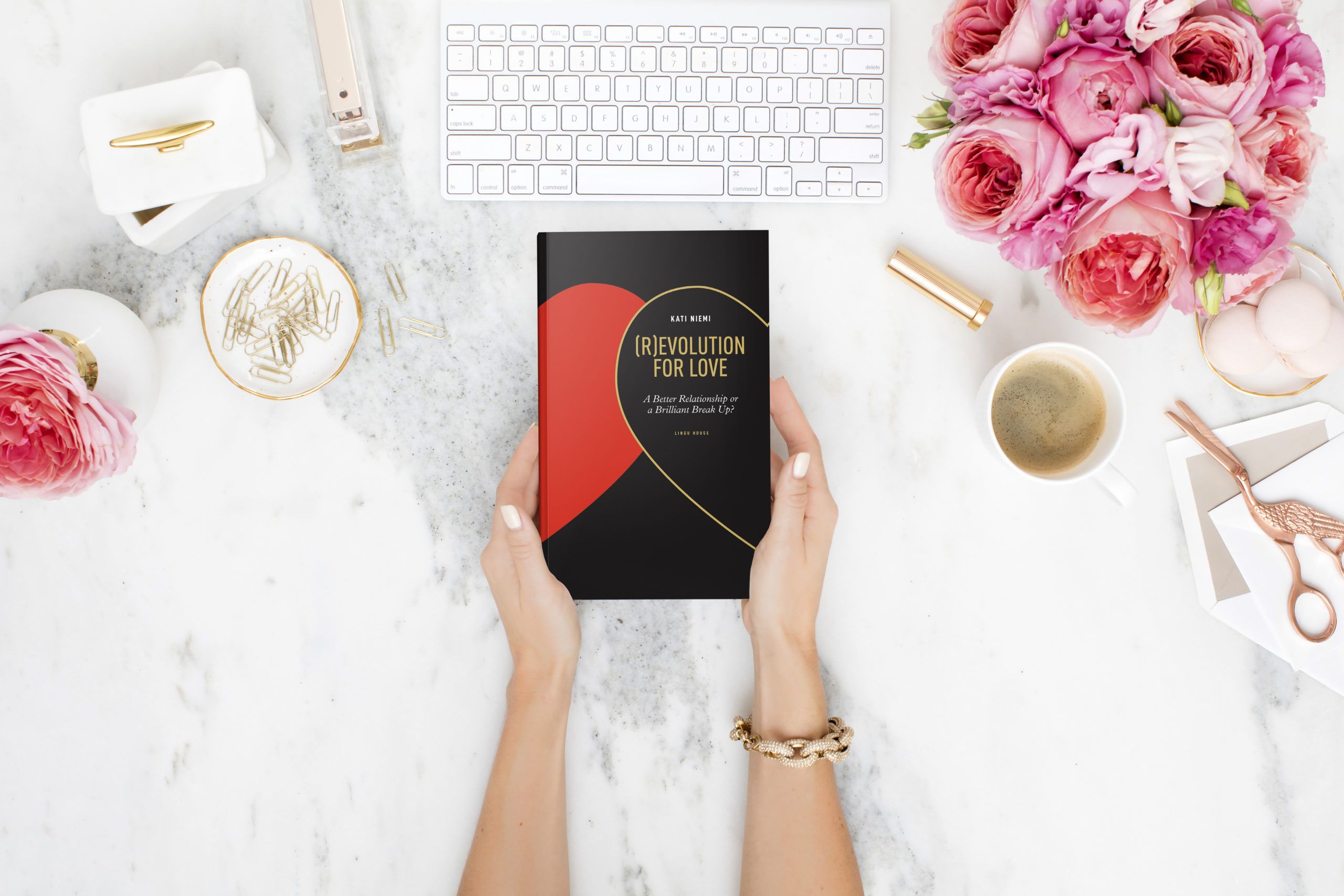
“FIVE STARS!” Book reviews: (R)evolution for Love (Amazon Books)
“Five Stars!” Editorial reviews and reader reviews of (R)evolution for Love – A Better Relationship or a Brilliant Break Up? Amazon books

FEEDBACK TO LOVE! Reader reviews (Book+Blog)
RELATIONSHIP GUIDE: BOOK REVIEWS – We are blown over by the feedback the (R)evolution for Love relationship blog and guide have received. WOW!

FREE AUDIOBOOK: Audible, Google Play and other stores’ free trial
Audiobook lovers benefit from FREE trial periods of book stores. Enjoy (R)evolution for Love on Amazon Audible, Google Play & other stores

FREE EBOOK ‘I love you but…’ – To Break Up or Not to Break Up?
Refocus your energy now to improve your love life! This FREE ebook ‘I love you but…’ will help you move towards a better relationship or

How to improve your wellbeing through self-development?
Science has revealed: some adults are not mentally sufficiently developed. How to improve your wellbeing through self-development?

Why does our conscious mind question the power of the unconscious mind?
Is the power of the unconscious mind fake news and is trying to harness it to achieve our full potential a waste of time? What do we mean by the unconscious mind?

INFIDELITY and the collected excuses: The good reasons for cheating
CHEATING: What is a good reason to cheat? What do the cheated partner, “the other woman/man” or the cheater choose to believe in?

What is an open relationship? Does it lead to breaking up?
What is an open relationship? Who are non-monogamous open relationships for? Is your partner suggesting consensual non-monogamy?

Narcissism in a Relationship: “How to Know if My Partner Is a Narcissist?”
What are the signs and causes of narcissism? Can you make a relationship with a narcissist work? Can you heal a narcissistic partner?

Aromatherapy for Libido & Romance – The Best Essential Oils for Love
Sense of smell influences our sexual desire and performance. Aromatherapy tips and the best essential oils for romance, libido, sex and love.

When positive thinking becomes toxic
What is too positive thinking like? Where should we focus the power of our mind and our willpower?

TO BREAK UP OR NOT TO BREAK UP? Should I stay or should I go?
How do you know if you should leave or not. How to make the decision to break up or to improve your relationship? To break up or not?
